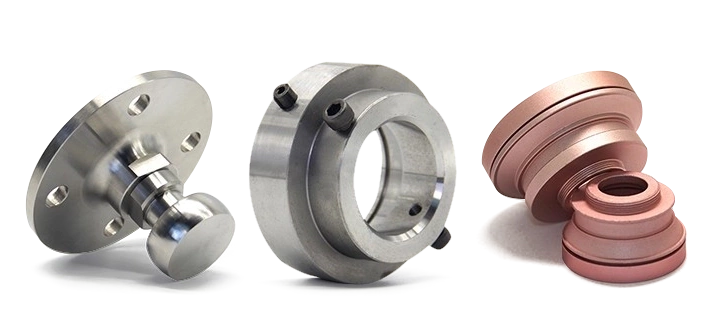What is CNC Turning?
CNC turning is a substractive manufacturing process that create turned parts by rotating the rod material against a cutting tool, it is commonly used for functional prototypes and end-use parts with axial and radial holes, flats, grooves, and slots. If your parts design has symmetrical cylindrical or spherical features, CNC turning is recommended for you.
CNC Turning Capabilities
Maximum part size
| Limitation | Parameter (Metric) |
| Max swing diameter: | 360~800 mm |
| Max cutting length: | 270~1500 mm |
| Spindle bore: | 45~100 mm |
| Rapid moving speed: | 20 m/min |
| Spindle speed range: | 50-4200 r/mm |

Why CNC Turning with China Medical CNC Machining Inc.

Instant Quoting
No more email back-and-forth, by simply uploading your design files and selecting the material and surface finish, our big-data-driven platform calculates an accurate and competitive CNC quotation in real-time.

Strong Capacity
Having been in this industry for nearly 2 decades, China Medical CNC Machining Inc. has developed a team of engineers with profound CNC project experience. Get machining parts suggestions that achieve the same function at a lower cost.
Engineering Support
It is our tenet to always put the customers at the first place. We proudly have a dedicated customer success team that restlessly offers online chatting, email, and the phone supports to ensure the parts meet your expectations.
Real Customer Feedback
I received the sample today and am very happy with the chrome finish as well as the overall look. I was also impressed with how well you packaged the items 🙂
— Alvaro Reese
Thank you for the attention to detail and working with us to get his first order completed. Your speed at communication and positive approach is a real credit. We look forward to an ongoing reliable relationship with you and your company.
— Maren Ferrell
I received the part last night and I am really happy with the results. I plan to bring more orders to you in the future, mostly of one off custom parts. Thanks so much!
— Javion Garrett
Materials for CNC Turning
The various available materials is another advantage of CNC turning. At China Medical CNC Machining Inc., you can choose from over 50 metal and plastic materials. We also provide material certification at your request.
Aluminum is a highly ductile metal, making it easy to machine. The material has a good strength-to-weight ratio and is available in many types for a range of applications.
Available Subtypes
Aluminum 6061-T651
Aluminum 6063
Aluminum 7075
Aluminum 6082
Aluminum 2024
Aluminum 5052
Aluminum 5083
Aluminum ADC12 (A380)
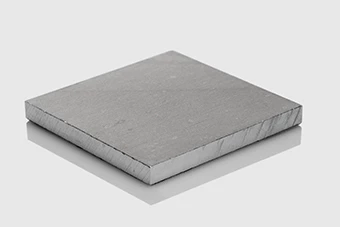
Copper displays excellent thermal conductivity, electrical conductivity and plasticity. It is also highly ductile, corrosion resistant and can be easily welded.
Available Subtypes
- Copper
- Copper 101
- Copper for EDM
- Beryllium copper
- Chromium zirconium copper
- Tungsten copper
- Antimony copper
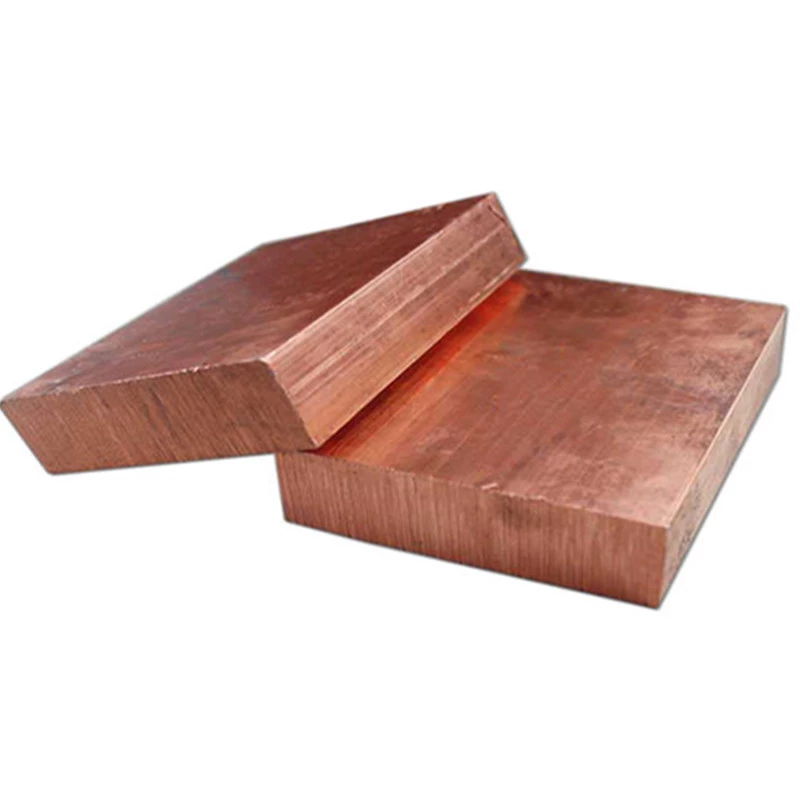
Brass has desirable properties for a number of applications. It is low friction, has excellent electrical conductivity and has a golden (brass) appearance.
Available Subtypes
- Brass 2680
- Brass H59
- Brass H62
- Brass 260
- Brass 385
- Brass CAD260
- Brass 360
- Tin phosphor bronze
- Aluminum bronze plate
- Tin bronze
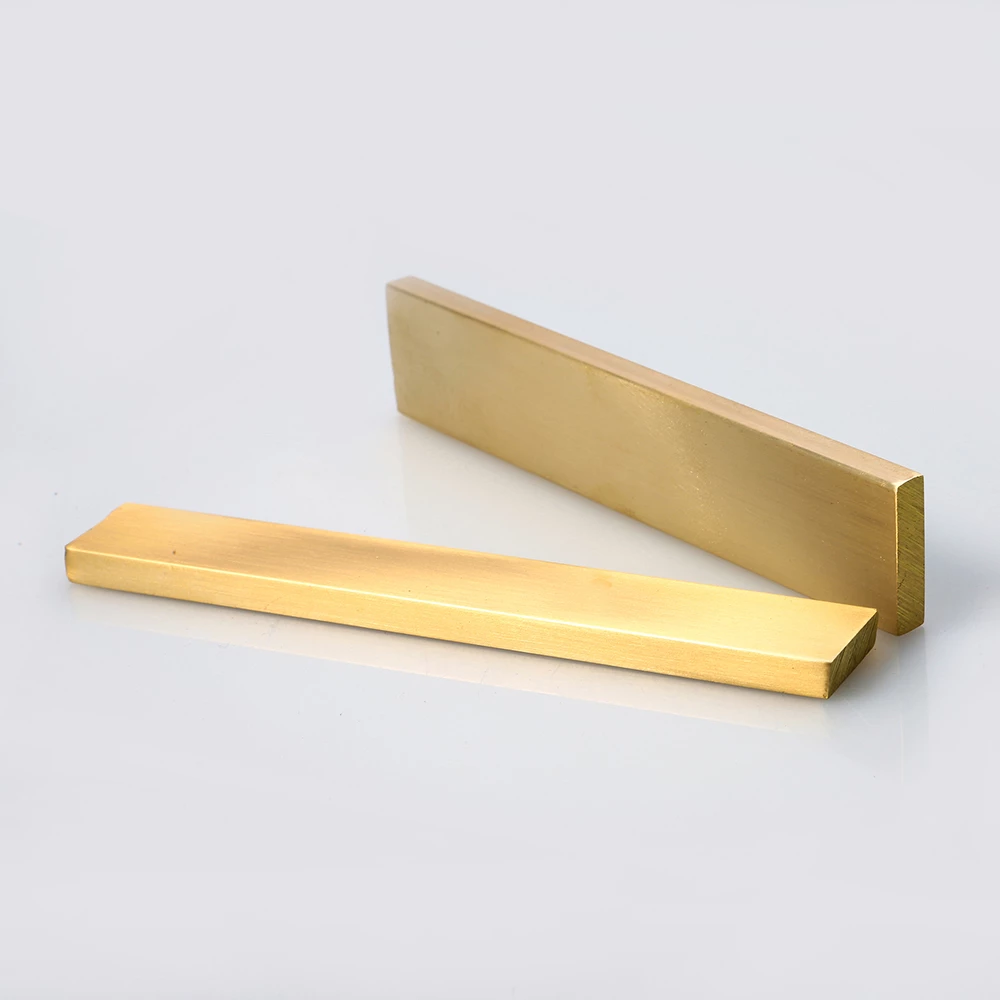
Steel is known for its high tensile strength and low costs. It is a ubiquitous material in the construction, infrastructure, automotive, maritime, tooling, manufacturing and defense industries.
Available Subtypes
1008 Steel
1018 Steel
1020 Steel
1025 Steel
11Smn30 Steel
1215 Steel
4041 Steel
40Cr Steel
4130 Steel
4137 Steel
4140 Steel
42 Crmo Steel
4340 Steel
4J36 Steel Alloy
5140 Steel
5160 Steel
60Si2Mn Steel
65Mn Steel
A2 Tool Steel
A36 Steel
C3600
Class 8 Gray iron
Cr12Mov Steel
D2 mould steel
DC-01 Steel Cold rolled steel
EN16T Steel
EN3B Steel
EN8T Steel
H13 Steel
Inconel Steel
Invar 36 Steel
NAK80 Steel
P20 Steel
S136 Steel
S7 Steel Tool Steel
SK5 Steel
SKD11 Steel
SKD61 Steel
SKH51 Steel
ST37 (Q235) Steel
ZGmn13-5
Galvanized Steel / SGCC / SECC
S7 Steel
SCM440 (40CrMo) Steel alloy
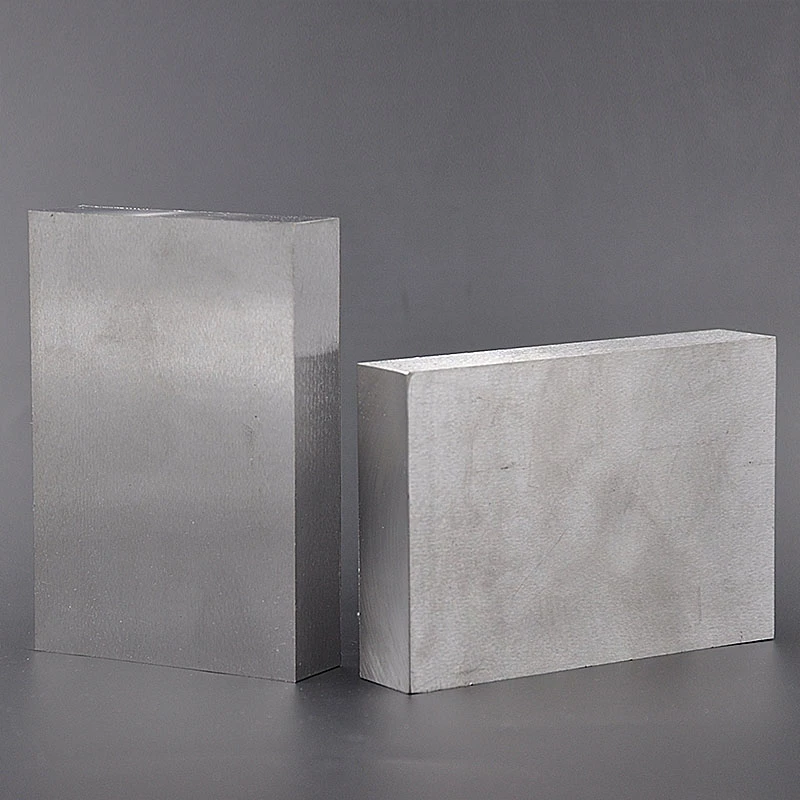
Stainless steel typically contains a minimum of 10% chromium by weight. It is a popular metal within a broad range of industries, including construction, automotive, aerospace and more.
Available Subtypes
SUS303
SUS301
SUS316
SUS316L
SUS401
SUS416L
SUS416
SUS420
SUS201
SUS430
SUS431
SUS440C
SUS410
SUS630 / 17-4PH
PP631 / 17-7PH

Titanium is resistance to corrosion, chemicals and extreme temperatures, and has excellent strength-to-weight ratio. It has broad adoption in the aerospace, medical and defense industries.
Available Subtypes
- TC4 Titannium Alloy
- TC5 Titanium Alloy
- Military-grade titanium Alloy
- Food-grade titanium Alloy
- R53400 Titanium Alloy 9
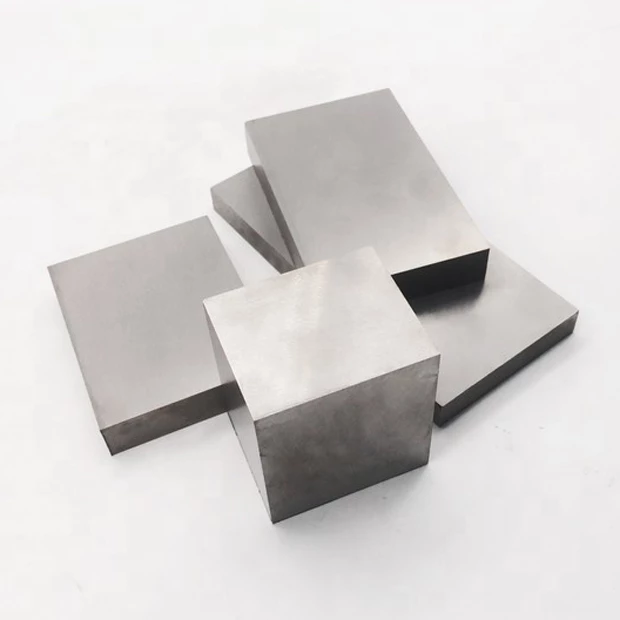
Plastic is an indispensable part of our everyday world. It is known for its lightweight, high strength-to-weight ratio, electric insulation, low price, suitable for mass production, etc. The application of plastics is so wide that you can always see it in all industries.
Available Subtypes
- ABS
- PC
- ABS+PC
- PMMA
- POM
- PP
- PA
- PEEK
- PET
- PVC
- PPSU
- PPS
- PTFE
- PBT
- PE
- PEI
- HDPE
- UPE
- CPVC
- EPP
- FR-4
- HIPS
- LDPE
- PAI
- PETG
- PPA
- PS
- PVDF
- Bakelite
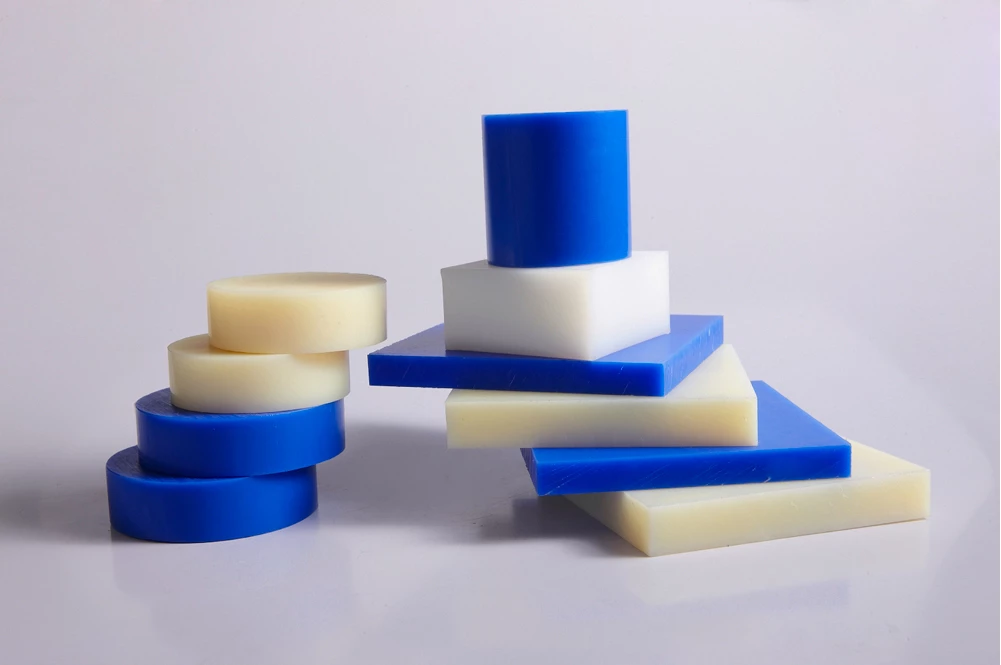
Surface Finishes for CNC Turning
CNC turned parts are left as-milled, and surface finsih can change the appearance, surface roughness, hardness and chemical resistance of the produced parts. Determined by the material using, a part can have one to serval available surface finishing options. Learn more at our surface finish page.
Anodizing changes the surface state and performance of the material, thus improving corrosion resistance, enhancing wear resistance and hardness, and protecting the metal surface.
Aluminum
Price:
★★☆☆☆
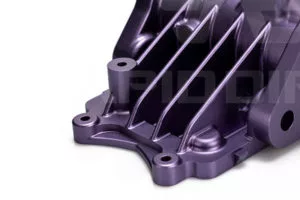
Bead blasting directs abrasive material onto the surface, so as to alter and improved the properties of the workpiece surface - such as roughness and uniformity.
Aluminum, stainless steel, steel, copper, bronze, titanium, magnesium, zinc, all plastics
Price:
★☆☆☆☆
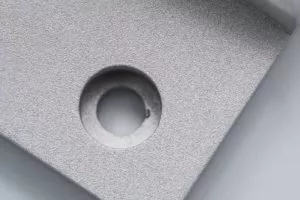
Powder coating is a surface finishing technique used to create a hard finish tougher than normal paint. Commonly used for coat metal parts.
Aluminum, stainless steel, steel, copper, bronze, titanium, magnesium, zinc
Price:
★★★☆☆
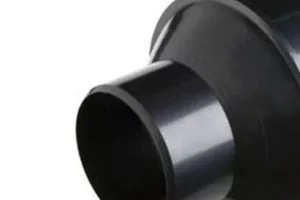
Electroplating bonds fine layers of metal to the surface of another metal, thus reaching either functional, decorative, or corrosion-related properties.
Aluminum, stainless steel, steel, copper, bronze, titanium, magnesium, zinc
Price:
★★★☆☆
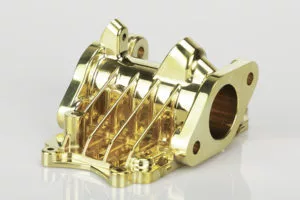
Polishing is the process of creating a smooth and shiny surface, it produces a surface with significant specular reflection, so as to improve the appearance of new or used metal parts.
Aluminum, stainless steel, steel, copper, bronze, titanium, magnesium, zinc, all plastics
Price:
★★★★☆
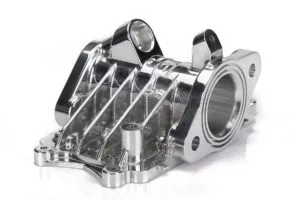
Brushing is a surface treatment process in which abrasive belts are used to draw traces on the surface of a material, usually for aesthetic purposes. Most commonly applied to aluminum.
Aluminum, stainless steel, steel, copper, bronze, titanium, magnesium, zinc, all plastics
Price:
★★★☆☆
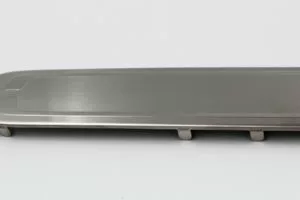
Painting involves spraying a layer of paint onto the surface of the part. It can improve the part's aesthetic appearance and can add a protective layer on the parts.
Aluminum, stainless steel, steel, copper, bronze, titanium, magnesium, zinc
Price:
★★★☆☆
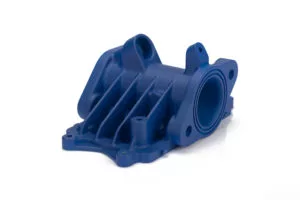
Quality Reports & Certifications

Certification
During the production of every project, we strictly obey the ISO 9001:2015 requirements. We can provide material certifications, SGS, and ROHS certifications, please contact our sales team at your request.

Quality inspection
We have a team of dedicated engineers who always feedback best practices for you. During production, the quality department conducts In-Process Quality Control every 30 minutes to minimize risks.

Additional service
China Medical CNC Machining Inc. respects your intellectual properties, we always welcome NDA agreements for all order. For production orders, you can apply First-Article Inspection. In the end, you can always enjoy our Rework & Refund Policy.
CNC Turning Design Recommendations
Result from the processing features, CNC turning has slightly diffrent design guidelines with CNC milling process. Following these recommendations can greatly benefit the production efficiency and reduce cost. Learn more about CNC design guides.
Recommended: 0.8 mm (metals), 1.5 mm (plastics)
The less wall thickness, the less material stiffness. It will lead to the vibrations during machining and lower accuracy. We recommend you use even larger minimum wall thickness for plastics.

Recommended Diameter: standard drill bit sizes
Recommended Depth: 4 - 40 times nominal diameter
The tools used for drilling holes are either drill bit or end mill tool. For high accuracy holes smaller than ⌀20 mm, using a standard diameter is recommended.

Recommended size: M6 or larger
Recommended length: 3 times nominal diameter
Threads are divided into internal and external ones. Internal threads are cut with taps, while external threads with dies. Taps and dies can be used to cut threads down to M2. CNC threading tools are common and they are preferred, as they limit the risk of tap breakage.

Upload CAD files and get a FREE quote today!
Instant Quote & Order
Only 4 simple steps to complete your project. Follow the instruction and give it a try!
